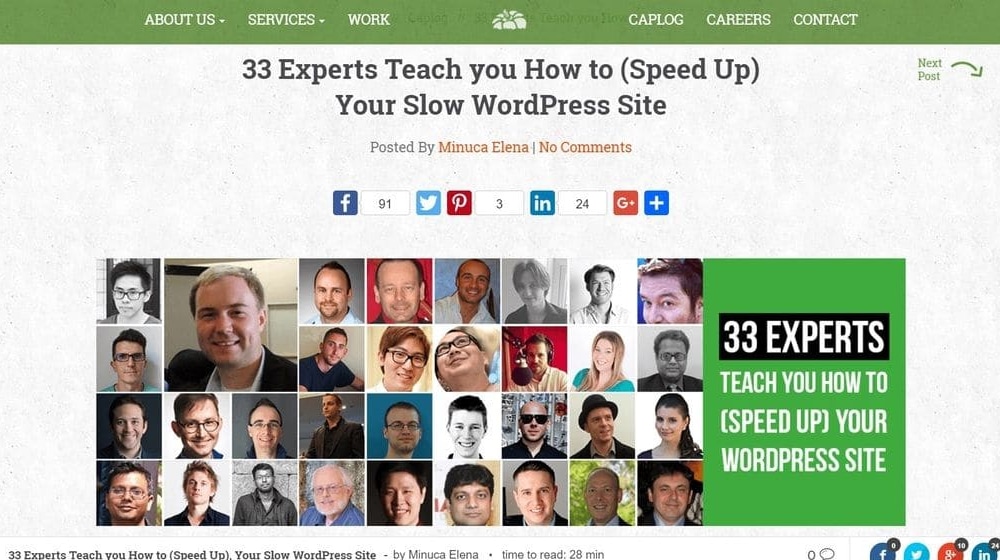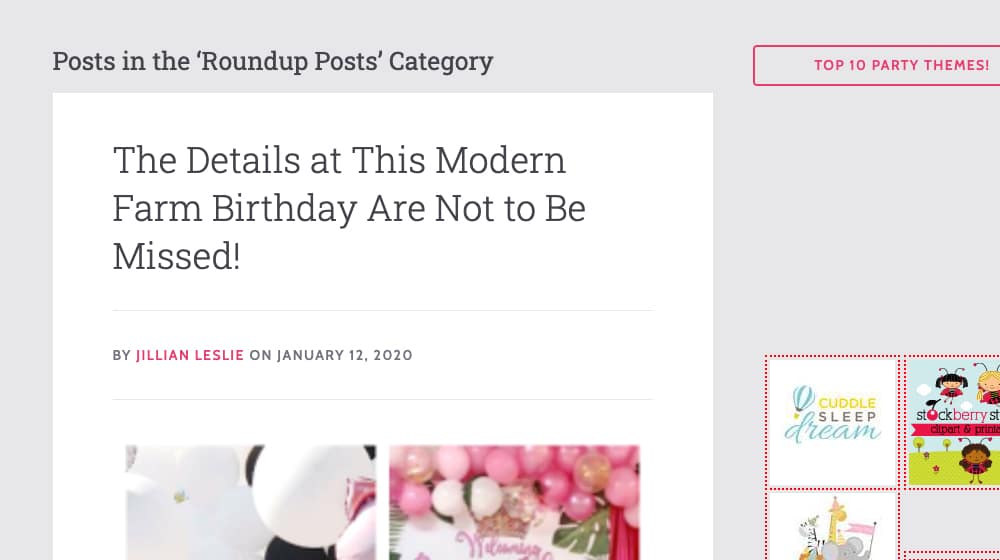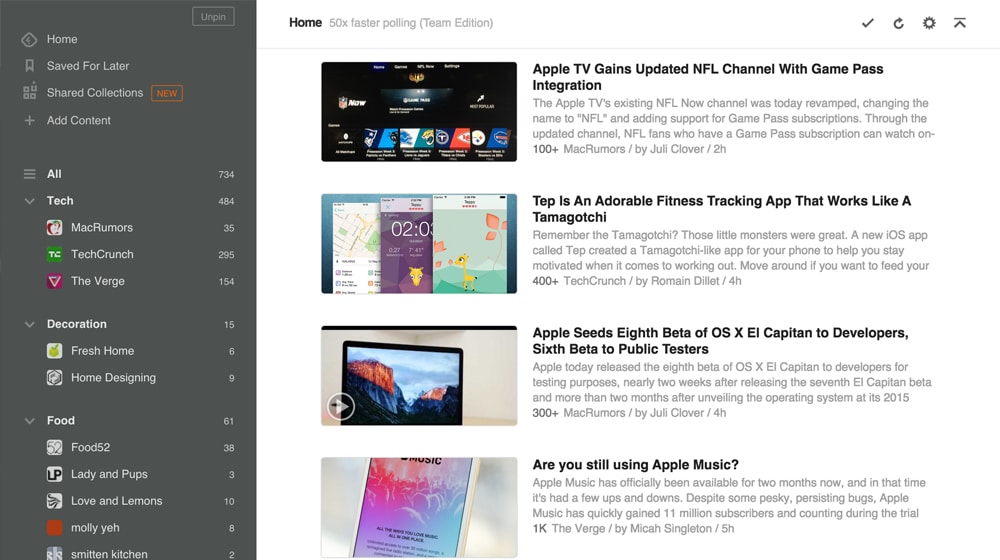What Are Content, Link, and Expert Roundups?

Ah, the roundup post. One of my favorite strategies that I probably don't use quite as much as I should. They're a great strategy for building links, building relationships, building a position in your industry, and generally producing content on a regular basis that people look forward to seeing.
Since I love the technique, I'm going to tell you all about how to do it.
 30 Second Summary
30 Second Summary
You'll get great benefits by creating roundup posts that feature other people's content on a regular schedule. You need to choose between weekly, monthly, quarterly or yearly posts - monthly often works best since it gives you enough time to find quality content. When you run a roundup, you'll build relationships with other bloggers, show you know your industry well and create valuable content without much writing. You can get similar benefits when other sites feature your content in their roundups.
What are Roundup Posts?
The concept of the roundup post is pretty simple. You produce a blog post that has links and summaries of content. That's it!
Okay, so there's a bit more to it than that. A roundup post has a few things that separate it from a normal blog post.
- Roundup posts focus as much as possible on content produced by other people.
- Roundup posts are a reoccurring piece of content published on a regular schedule.
- Roundup posts explicitly work to build relationships with other bloggers.
Additionally, link roundups are only good pieces of content when you're also producing high quality content of your own on the rest of your site. You need to be an insightful, high quality source for anyone to want to trust what you have to say. A recommendation from someone with no knowledge on the subject they're talking about is not a worthwhile recommendation at all.

Oh, and before we get too much further, I should mention that I'll be using the terms link roundup and content roundup interchangeably. They're basically the same kind of content, and almost no one uses "content roundup" to mean anything dramatically different. A link roundup is if anything a little more broad, in that it can cover types of posts that aren't traditional content. A content roundup might focus on blog posts, while a link roundup handles case studies, infographics, and other kinds of media as well. Either way, it's all the same format:
- Link roundup: A roundup posts that is pieced together from multiple different authors to create a useful piece of content, with the primary purpose being link building / link bait.
- Content roundup: The same as the above, but not necessarily with a primary focus on link building.
- Expert roundup: A content roundup that is put together from advice and information sourced by experts in their respective fields.
That format, by the way, is generally pretty lazy. A link roundup post is a blog post, ostensibly, but it's little more than a collection of links with some level of basic description.
Some link roundups look a lot like this one from Zac Johnson. Their link roundups are fast and to the point. They include a heading with the broad topic, links with the names of posts, and that's it.
Other link roundups – which I find both more effective and better for SEO – look like this one from UpCity. They have headings for the topics, and links to each post they want to promote, but each one also has some description of what is on the other side of the link. They specifically link to the author name, but I've seen it with the author name, the blog post title, the blog name, and even just descriptive sentences.
Whether or not you include more description than that, or a lengthy introduction and conclusion, depends on you. I like to include both, to give the posts more content and to introduce any quirks, add links to past and future roundups, and even explain the whole concept to newcomers.
The Benefits of Roundup Posts
You can get a lot of benefits from link and content roundup posts, from both sides of the coin.

As the person curating the roundup:
- You gain a great, high quality post for your blog. You don't have to do a lot of writing if all you're doing is adding a link and 50-100 words of description for that link, and you can still easily produce 2,000-2,500 words worth of content for a post. That's a great post already, and if you make longer roundups, even better.
- You showcase that you're part of the niche at large, and that you're aware of what's going on around you. This might not seem like a large benefit, but people who find your blog want to know who you are and whether or not to trust you. When you demonstrate on a regular basis that you know your industry well, they're more likely to give you that credit.
- You gain some benefit from those blogs you link to, as they appreciate the feature and may return the favor. If they don't know of you already, they will when they see the incoming link and traffic. If they do know you, they might check out your content and add you to their RSS feeds, or even just follow you. Often, they will find a chance to link to you in return, without you having to ask, so long as you have the good content to serve as a good destination.
- You become a prominent figure that other blogs approach to get their content featured. Once you achieve a certain level of popularity and visibility, other people will start coming to you. Roundup posts are a great way to build relationships with other bloggers who may be up and coming stars.
Then, if you're the person submitting content to be featured on a roundup:
- You get a link from a prominent blog with readers who are already willing to visit links. That second part is the key; a link from a good blog is good for SEO value, but they aren't always great for traffic. Roundup post readers, however, are already expecting to get their value out of following the links, so they're much more likely to visit and read your content.
- You can build a relationship with the owner of a blog and partner in the industry. Again, building up a relationship is always a good piece of value, from both sides of the coin.
All of this is why link roundups are great as both a link building strategy and as a content marketing strategy. Can you see why I like them so much yet?
I've noticed that a lot of articles about link roundups are talking about them from a submission perspective: how to get your content featured in those roundups. I'll cover that a bit later one, but my main focus here is about how to produce these roundup posts yourself. Here's my tips and considerations, if you're interested in being the content producer in the equation.
Picking a Schedule
The first thing you want to think about is a schedule for your roundup. There are four possible levels of schedule.
Yearly. The annual roundup is a time-honored tradition amongst a lot of different blogs. They tend to be year-end retrospectives of the top-of-the-top content that was published in the niche that year.
Yearly roundups can be great because they become year-long resources for the entire coming year. They're a great way for people to look back on what happened that year and use that for their own analysis, and they can be chock full of guides for crucial developments in the industry for the year. They also make great evergreen content.
The downside is that you can only publish one once a year, which means you're going to have to make it excellent. You're going to have to monitor content all year and keep this document active while you produce the post throughout the year. It's a lot of work for one single post, and that one single post isn't going to be quite as valuable as twelve monthly posts put together, generally.
On the plus side, any other schedule can make a big deal out of the final post for the year and make it a special annual edition of a monthly/weekly roundup. You're never not able to do a yearly roundup as part of a roundup schedule.
Quarterly. Quarterly – once every three months – posting of a roundup is probably the worst of all worlds for the roundup schedule. It's infrequent enough that people don't learn to follow it and anticipate it, but since it's quarterly, it doesn't have the same allure or appeal as an annual review. As such, most people don't chose to use this schedule option.
In my opinion, the best time to use a quarterly roundup is when you're not publishing blog posts very frequently, and when your industry isn't very large or fast-moving. A small niche industry where there isn't much top-tier content makes it hard to fill a roundup every week. Plus, it's hard to do a weekly roundup when you only publish one blog post each week.
Monthly. The monthly roundup is probably one of the most common roundups. It has just the right balance of frequency and value. If you write one blog post each week, a monthly roundup isn't going to dominate your schedule. You have a whole month to look back at top-tier content published in your niche and choose the best, but you're not limited to the same names that always show up because they won't always have the top-tier content you want to feature that month.

Weekly. Weekly is a common schedule for the lower-end roundup post style, the kind where you aren't putting a lot of effort into writing descriptions or choosing only the best, most useful guides and evergreen posts. It's difficult to pull off because you need a blog that's active enough to support weekly themed posts while still posting other content. As such, I recommend it only to blogs that have multiple authors and are already posting near-daily or multiple times per day.
Weekly roundups tend to be more intimate and can feature a wider variety of blogs, though, which makes them better for broad-base link building and relationship building. They have their benefits, they're just difficult to pull off consistently.
Regardless of which schedule you pick, you need to make sure that you maintain that schedule. If you don't actually post as often as you claim you're going to post, then people are much less likely to want to be part of your roundups.
Incidentally, this is why I like having an intro to my roundups. I can include two links. The first goes to the directly previous roundup, and the second is edited in later, to the next sequential roundup. This way people who like the roundups as resources can navigate to the next one or to the most recent one, or browse backwards to see what other kinds of content you've featured. Sure, it takes a little maintenance to make sure you're always adding that link, but it's not really that bad; just make a note to add it whenever you publish a new one.
Picking a Niche
You can do a general industry content roundup, but sometimes it pays to have a narrower, more dedicated theme to your posts. When you do broad coverage, you end up linking to the same posts everyone else knows, because it's just "the good content published by the big names this month" or whatever.

You want to pick a niche that's broad enough that people are writing content within it often enough to fill up your roundup, but narrow enough that it feels like a theme. "Marketing" in general, for example, might not be a great theme. "Tech Innovations in Marketing" is a narrower theme. "Content Marketing" is a little broad, but can work fine, except it's not an industry that really changes enough that a roundup of great posts is going to be too innovative. Still, it's up to you if you want to try it.
Finding Content to Feature
So once you've decided on a niche and a schedule, how do you find content you want to feature? There are a few different places to check.
Google. Since your topic is something you're familiar with and write about yourself, you should be familiar with the usual keywords used to find content in that niche. Search for those with Google's time filters to limit how old the content can be. You can also use Google News to look for high profile news content in that niche.
Your own bookmarks. I like to use RSS/Atom to subscribe to the top blogs in my industry, to keep an eye on what's going on just in general. A lot of my posts end up covering similar subjects, or are written as responses to existing recently published posts.

As you browse, if you find a site you like, add it to your list to check for good content each week/month/quarter. If you come across content you really liked or that went viral, add it to the list for your next roundup post.
Social media. Twitter is especially good for this. Monitor the common industry hashtags, aggregators, and other accounts that are likely to be sharing links to good content. If you like the content, add it to your list.
Solicitations. Once it becomes clear that you're publishing a regular roundup style post, you can open up to submissions. Many people use link roundups as a link building trick, so you're going to have people submitting to you regardless. I find it beneficial to do something like channel those submissions into one specific email address to filter later.
Over time, you will build up a stable of websites you want to check regularly. Some sites will show up every time you do a roundup, because they're constantly producing top-tier content. Other sites you might only want to feature occasionally. When you do, it's a great opportunity to foster more of a relationship with those sites.
Leveraging Roundups for Further Benefit
There are two ways to make use of the fact that you publish roundup posts, for further benefit.
First, you can use the roundup as a way to gain more newsletter subscribers. In your content, include a call to action that asks users to subscribe to your newsletter if they like the roundup. Make this a special newsletter – not your usual lead generation or marketing newsletter – that you use to promote your roundups. You can even do a brief daily digest sort of newsletter here, or you can send out pared-down versions of your roundups before you publish the main post, or implement some other gimmick.

You can use this newsletter as a way to keep people in the loop and rope them into further marketing as well, usually by including some of your own content or advertising in the body of the newsletter. It's up to you to develop a strategy that works for you.
Second, you can send emails to the people you feature, notifying them that you featured them in your roundup post. Use their contact form or, if you have it, a more personal email address for them. Your email doesn't need to be long:
Hey there [name]!
My name is [your name], owner of [blog name]. Each [week/month/quarter/year] I produce a roundup titled [Name Of Your Roundup Series]. Each [period] I feature the best content on [topic] published that [period]. I'm pleased to tell you that your post, [Name of Linked Post] was featured in this [period's] roundup! You can see it here. [link to roundup post].
If you have any questions, let me know!
All you're doing here is letting them know that you featured them. Don't ask for anything, don't try to solicit a link in return, but be open and polite if they respond. Chat with them and build a relationship! After all, isn't that what it's all about, in the end?
Pitching Your Content to Roundups
So what about the other side of the coin? It's one thing to be the one producing the roundups, but what if you want to get your content featured on the roundups that already exist?
Well, the first thing you need to do is produce high quality content. If you want, you can target specific roundups by writing content intentionally focused on their niche, but you don't always have to. Often, you can find roundups that suit your content, rather than the other way around.
From there, it's all about finding the roundups and submitting a pitch. Articles like the QuickSprout post I linked above, or this post from Webris, are good guides on how to find them.
I like using both sides of the coin. Publishing a roundup is a lot of work, but it makes you a hub of industry social activity. Meanwhile, submitting your content builds links to your posts and helps you forge relationships with other companies. There's no reason not to do both, right?
Have you ever tried to run a roundup before? If so, has it worked out for you, or did you encounter issues? Feel free to tell your story in the comments!



 30 Second Summary
30 Second Summary



May 26, 2020
Thank you sir, this answered my question. How do I find people for a roundup post? Do I email them?
May 27, 2020
Hi Akesh! Absolutely, you can send emails - I get these quite often. Another option worth considering is HARO (Help a Reporter Out), which makes it pretty effortless to connect with dozens of different experts and get free quotes and content for your posts. I personally recommend giving HARO a try, to get 30 quotes you might have to send 500+ emails which takes a ton of time and organization to accomplish. In HARO, you simply post the question as a journalist and you'll have dozens of experts emailing you within 24 hours. Glad my post helped!
August 20, 2020
Hi James, you would not recommend doing Link Roundup for a budding blogging website? I mean, featuring authors and letting them know about it aka “building relationships” can be beneficial too when starting out right?
August 20, 2020
Hi Jenna! I don't see why not, I wouldn't count on them for any sort of long-term strategy but they are fun to do every now and again and can be effective as link bait. I think their primary value isn't necessarily long-term organic traffic but the shares and blog mentions / links that they can generate. I would just choose a topic that has some decent search volume and that people are actually searching for, and try to get as many prolific experts to chime in as possible. The more, the better 🙂
October 23, 2020
Wuld it be fine if we feature people in a roundup without asking permission and just advise them once it's up? Just making sure I am getting the idea correctly to prevent future problems.
October 26, 2020
Hi Jeffrey!
I'd definitely ask for permission first if you could, but it depends on the context of your roundup. If it's a roundup of quotes that are all public information, for example, you do not need to ask for permission. If it's an interview or you're writing new content under their name, that's a different story.
The primary value of roundups like this are to easily generate a lot of unique content from dozens of different sources, so if you're using public inforation like quotes, it loses a lot of the benefits that roundup posts have in the first place.
December 17, 2020
I would like to try this, it seems like a lot of work though, isn't it?
December 18, 2020
Hi Janet!
It isn't too bad. The more organized you are, the easier it is.
I've done this with spreadsheets - log their email, profession, name, website, reply status, notes, etc.
If you want to build a round-up post of 25 experts, reach out to 100+. If you want a list of 50, reach out to 200+.
Many of the people won't reply or it will hit their spam box, so it helps to reach out to a lot more than you need.
Also, some of the replies won't be as high quality as you'd hope, so ideally, you receive more than you'd like so you can cherry pick the best.
Hope this helps!
May 31, 2022
Thanks for an informative article, James.
I've been blogging on and off for a couple of years, but have recently realised the huge value of connecting with similar bloggers - not sure why I was trying to go it alone before!
I'm in a couple of Facebook groups where you can ask for links to a Roundup post, and I'm just about to write my first one. My plan is to write one each month, featuring recipes that use ingredients that are in season in my garden that month (my niche is eco living, with my gardening and recipe content the most popular).
I have had over 75 links offered in just a few hours, and was wondering what is a suitable number to include in my post? I don't it to become too huge, which may be off-putting for readers.
Looking forward to your advice.
Pippa
June 03, 2022
Thanks, Pippa!
I don't think you'll run into too many problems if you have a giant list like that. A Table of Contents might be a good idea to help users navigate around an enormous article like that, but other than that, the only SEO concern is that the link juice for each participant will be watered down a bit and split 75 ways. That doesn't affect you too much, though. I would also carefully review each site and consider nofollowing links to questionable or lower-quality websites. Each of those links is a "vote" of confidence in Google's eyes, so it's essential to audit each link independently and use good judgment.
I wrote an article that I think will be helpful to you:
https://www.contentpowered.com/blog/many-external-links-articles/
Please let me know what you think!